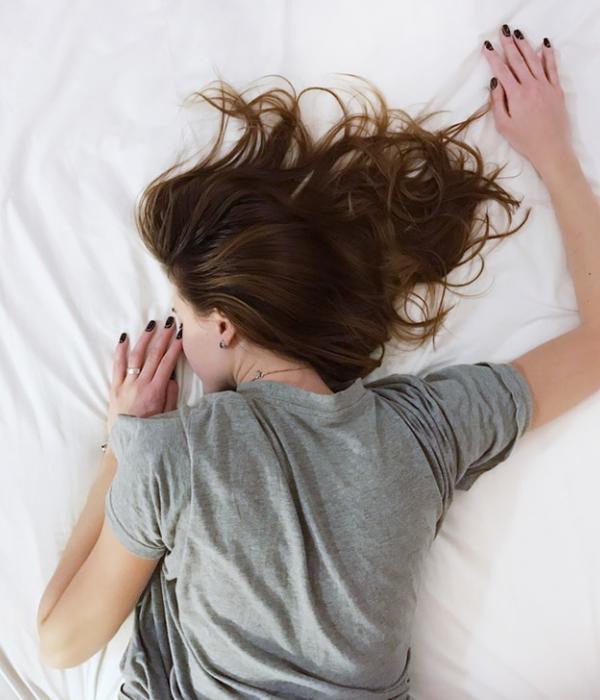
Your sleep is our dream and March 22nd is the Day of Sleep Stay awake to understand everything!
Categories : Event, published on : 3/22/19
At the Hotel de Lille, our dream is to offer you refreshing and relaxing nights filled with good quality sleep.
Driven by our desire to ensure that your nights are as beautiful as your days, we’re presenting some tips and info. Your sleep interests us, so it’s quite appropriate that we interviewed Dr. Joëlle Adrien, President of the National Institute of Sleep and Vigilance and neurobiologist and research director at INSERM, who was kind enough to give us some advice and share her research. “Sleep is one of the essential aspects of health and well-being. Yet for many people getting enough good sleep is a difficult problem that affects their everyday lives. At the National Institute of Sleep and Vigilance, which I chair, we carry out an annual survey to identify difficulties and propose solutions on a daily basis.”
How to fall asleep is the first question and starting point, and then how to get back to sleep?
Nearly 43% of French people are struggling on both counts.“On the black screen of my sleepless nights ...” What are the factors that contribute to lack of sleep and what solutions can be offered? Daily consumption of caffeine, whether it’s ingested in coffee or soft drinks, has a lasting effect on sleep. 70% of French people, and they are not the only ones, drink such beverages every day and these consumers rank high among those who sleep only six hours or fewer per night and have more sleep problems.
“It's the vicious circle of bad sleep. We fight against the consequences of lack of sleep (drowsiness, fatigue, difficulty in concentrating) by drinking coffee, tea, cocoa or other beverages which cause sleep disturbances and increase the chances of waking up at night. So, these should be consumed in moderation.”
To live better and sleep better it’s necessary to adopt regular rhythms and to limit the late mornings and prolonged naps. We need to tell ourselves that trying to recover from sleepless nights by lying in at the weekend is not a good strategy. It’s a fact that morning sleep is less restorative than night sleep. In the early morning our body follows its natural daily rhythm and its temperature increases to secrete ‘the stress hormone’, cortisol. Knowing that, is the solution to get up earlier? The secret is to remember that sleeping is not a problem but a pleasure. So why are we sleeping less and less? It’s not because of work, partying or love but due to our fear of not being connected.
“Today we tend to be glued to our screens. We go to bed not just to sleep but to engage in TV watching, online activities and texting. This is, of course, particularly true of young people. Exposure to the light of screens fools the brain into thinking that the body isn’t ready for sleep. Connectivity, social networks, texts and e-mails, even dealt with in bed before sleeping, generate a cognitive excitement that is very detrimental to sleep. The often anxiety-provoking messages and the increasing prevalence of binge watching aggravate the situation. Respecting a ‘digital curfew’ for at least 1 hour before going to bed is essential for better sleep,” says Dr. Joëlle Adrien. “We live in a 24/7 world and the pressure of perpetual reactivity with its increased screen time is slowly killing us.”
Professor Joëlle Adrien tells us this about light:
Light is essential to our biorhythms; it nourishes and balances us. Managing your sleep or fighting jet lag or insomnia is all about managing light.
We need light so we can function normally and healthily ... but it can also be our undoing. Any light after sunset is an endocrine disruptor. “Today, we are constantly besieged by light, whatever the time, especially white lights, LEDs, and the glow of screens. This may explain why we have lost 1 to 2 hours of sleep in the last century.”
The light generated by screens, computers and LEDs before we go to sleep or during a night awakening literally attacks us. Take a tip from sunglasses-wearing celebrities; perhaps they’re actually being very smart! And remember; people who engage in lots of regular physical activity or spend plenty of time outdoors tend to sleep better. “Exercising is a guarantee of good sleep. It’s not necessary to visit a gym, go swimming, play tennis or participate in any organised sports activity. Just a brisk walk is great exercise. What matters is the regularity; try for at least 30 minutes every day or thereabouts and a little more at weekends.”
To sum up; if you want to sleep better and therefore live better, show respect to your biological clock. Give yourself the real time you need to sleep and dream.
Colombe de La Taille

Docteur Joëlle Adrien




